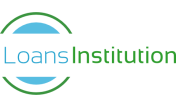Types Of Personal Loans – Most personal loans offer fixed rates and minimum borrowing amounts around €2,000 – an attractive solution for debt consolidation, paying for home improvement projects or even building credit. Personal loans are more popular than ever. According to a TransUnion report, their popularity has increased by 13% from 2019 to 2020.
While there are plenty of types of loans available, personal loans can allow you to immediately fund your plans without risking collateral, like a home equity loan. Let’s break down the different types of personal loans to help you make the right choice for your circumstances.
The Two Types Of Personal Loans
It’s helpful to think about unsecured and secured loans as umbrella terms. You can categorize the varying types of personal loans you’ve probably heard of. personal lines of credit, debt consolidation, vacation loans, etc. – into secured or unsecured loans. Let’s break it down:

Unsecured Loan
This is the most common type of personal loan you’ll encounter. Unsecured loans are personal loans backed by your credit profile rather than by using collateral, such as real estate, a car or even a pawn shop item. You’ll pay this loan back in fixed installments, typically over the course of 1 to 6 years.
Unsecured personal loans are best for those with excellent credit scores. Borrowers with bad credit scores may be facing interest rates as high as those seen with credit cards.
Secured Loan
Then there are secured personal loans, which are backed by collateral that the lender can repossess if you default on the loan payments. Common types of collateral include real estate, cars, boats, RVs, savings accounts or CDs and more. Secured loans are good options for borrowers who are certain they’ll be able to pay the loan back because the collateral makes the loan less risky for the lender, unlocking lower interest rates.
The most significant consideration for secured loans is the risk of losing your property.
What Different Types Of Personal Loans Are Used For
Now that you know what the two types of personal loans are, we can delve into more commonly referenced personal loans. Many of the following personal loan types can be secured or unsecured depending on your lender’s terms.
Debt Consolidation Loan
Most major lenders offer debt consolidation loans, which allow you to combine credit card balances, medical bills, auto loans and more into a single payment. This option is a great way to swap out high credit card interest rates for a lower interest rate. It also makes debt more manageable, as you’ll be able to make a single payment each month.
Some debt consolidation loans will increase the interest rate dramatically after a certain time period, so you want to make sure you can afford to pay off the loan while taking advantage of the lower interest rate.
Cosign Loan
If a borrower has yet to build good credit or if they have bad credit, a cosign loan is likely the best option for them. A cosigner – usually a relative or close friend of the primary borrower – takes on the legal responsibility of paying off a loan if the borrower defaults. They risk their own savings or credit to help the primary borrower get approved for the loan.
Knowing when to cosign on a loan should be dependent on the reason for the personal loan, the primary borrower’s credibility and the cosigner’s financial stability.
Credit Builder Loans
Credit builder loans are a great way to build credit without a credit card and to avoid cosigners altogether. More commonly found at smaller banks or credit unions, credit builder loans have relatively small balances ($500 or $1,000).
Typically, the borrower secures the loan with a savings account or CD, which will be inaccessible to the borrower until the loan is paid off. The loan is often so small that it’s paid off within a few months. With each fixed, on-time payment, the borrower’s credit improves. Once it’s paid off, you’ll have access to your collateral again, along with all the financial opportunities that improved credit offers.
Personal Line Of Credit
While other types of personal loans offer access to a fixed amount of money all at once, personal lines of credit are more flexible. Most major banks offer personal lines of credit, for which you’d be approved for up to a certain amount. You only pay interest on what you’ve borrowed.
This borrowing option is good for evolving circumstances, like ongoing medical expenses and home improvement projects without a set budget, or even for folks with lumpy incomes. Note that while lines of credit operate similarly to credit cards, they’re likely to have lower interest rates based on your credit, though not as low as a traditional personal loan.
Personal Loans To Avoid
The greatest lure of personal loans can also be their greatest drawback: they are personal. Lenders aren’t appraising the return on investment like they would in the highly regulated mortgage industry. The predatory nature of some of the below lending options is setting the stage for increased regulation.
Payday Loan
Payday loans are unsecured, extremely high-interest, short-term loans, meant to help cover emergency expenses until the next paycheck. That said, the average payday loan borrower is in debt for 5 months of the year rather than the advertised 2 weeks, according to a Pew Charitable Trusts study.
Borrowers, beware. With a payday loan, you’re more likely to go into further debt paying fees and exorbitant interest rates. An August 2019 study found that payday loans increase personal bankruptcies by a factor of two.
Pawn Shop Loan
If you’ve ever pawned something of value, you’ve taken out a personal loan. Pawn shop loans are secured personal loans backed by collateral that can be sold from a store front, like jewelry, signed baseballs or other relatively small valuables. Based on the value of the item, you could be loaned hundreds or even thousands of dollars with a fairly high interest rate. If you default on even a single payment, you may lose your item for good, depending on the loan terms.
If you have poor credit and don’t own something of greater value, such as a house or car, to take out a secured personal loan, it may be worth considering a credit builder loan as an alternative to a pawn shop loan.
Credit Card Cash Advance
Some credit cards allow you to take out a cash advance against your available balance, but they often come with even higher interest rates than when you swipe your card. If you have a credit card, you likely have good enough credit to qualify for an unsecured personal loan, which will have more competitive interest rates than a credit card cash advance.
Wedding Or Vacation Loans
You’d be hard-pressed to hear financial experts encourage taking out wedding or vacation personal loans. With the average cost of a wedding hitting $33,900 back in 2019, according to The Knot, it makes more financial sense to wed within your budget than to start off a marriage with avoidable debt.
Taking out a personal loan can be a thoughtful financial decision but only if you do your research and be mindful of exactly what you’re getting into. Even smart debt is still debt. Like every credit card or loan investment, consider saving money and having the funds on hand before going into debt for it.
Are Personal Loans Fixed Or Variable?
Personal loans can come with either fixed or variable interest rates. More often than not, lenders offer personal loans with fixed rates. Fixed rate loans allow you to reliably budget because your monthly payments will be the same for the life of the loan.
On the other hand, variable rate loans can fluctuate from month to month based on what’s called a benchmark rate. As your interest rate changes, so do your monthly payments. These loans are attractive because they often have lower APRs than would a fixed-rate loan. Because interest rates tend to gradually increase or decrease over extended periods of time, variable-rate options can make more sense for short-term loans.
Which Type Of Loan Has The Highest Interest Rate?
Without question, of the loans described in this article, payday loans will often come with the highest interest rate. Payday loans have such high interest rates that there’s an entire movement set out to regulate the industry. While 19 states have passed laws to cap interest rates and 5 other states have outright banned payday loans, a federal branch of government recently passed a ruling that essentially revokes these laws.
Which Type Of Loan Has The Lowest Interest Rate?
A secured personal loan is most likely to have the lowest interest rate, but that doesn’t mean it’s your best option. In order to unlock these low rates, you have to back the loan with some type of collateral, like your savings account, a CD, a vehicle, boat or even a house. Secured personal loans are only good if you’re so certain you can repay the loan that you’re willing to risk your own property.
Final Thoughts
You may hear other terms like construction loans, medical loans and more to describe the intent of the loan. What’s more important is understanding the terms of your personal loan.
Secured personal loans have more attractive interest rates, leading to lower monthly payments – but they come at the risk of losing collateral. Unsecured loan terms will vary based on your credit score.
Be sure to shop around for the best rates, read the fine print and make the best decision for your financial future. If you’re ready to take the next step, learn how to get a personal loan.

